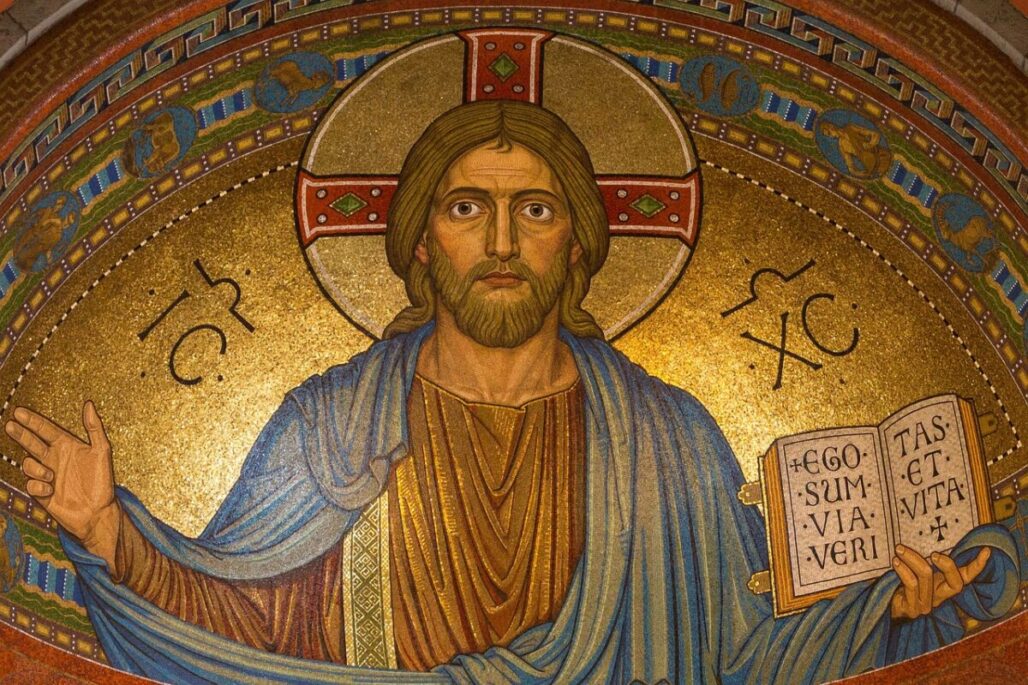In one of the classic interpretations of the Book of Moses by the famous Jewish sage and scholar Ibn Ezra, we can read the following commentary on the events of the last night in Egypt. This is Exodus 12:
“Then Moses called for all the elders of Israel, and said unto them, Draw out and take you a lamb according to your families, and kill the passover. And ye shall take a bunch of hyssop, and dip it in the blood that is in the bason, and strike the lintel and the two side posts with the blood that is in the bason; and none of you shall go out at the door of his house until the morning. For the Lord will pass through to smite the Egyptians; and when he seeth the blood upon the lintel, and on the two side posts, the Lord will pass over the door, and will not suffer the destroyer to come in unto your houses to smite you. And ye shall observe this thing for an ordinance to thee and to thy sons for ever. And it shall come to pass, when ye be come to the land which the Lord will give you, according as he hath promised, that ye shall keep this service!’
Many think that the appointment of the lintel and the doorposts is the responsibility of all generations, because after the commandment to take the hyssop and water it comes the words “And ye shall observe this thing”. In addition, it is said: “What mean ye by this service? … Who passed over the houses of the children of Israel” (verse 27). It would make sense, but we have a real tradition. It would be more correct to say that “And ye shall observe this thing” refers to the commandment to bring the Passover sacrifice… If we were to follow the commandments as we see fit, we would have to take a bunch of hyssop in all generations. But our ancient sages told us that these words refer specifically to the offering of the Passover sacrifice.”
Ibn Ezra writes that it is not necessary to take hyssop, to anoint the lintel and the doorposts, but the Lord’s commandment for the Passover is always to offer a sacrifice. That is the eternal commandment. And it was written by a great medieval rabbi, when for a long time there was no temple, no sacrifice of the Passover lamb, no high priest, no consecrated priesthood. He was not afraid to write honestly that the Lord’s command to celebrate the Passover and the true Passover seder is that everyone has a Passover sacrifice.
Thank God for honest rabbis. Unfortunately now, if you read the Passover haggadah, it says that the central rite is the breaking and eating of the matzah. But that’s not true. Matza is an adjuvant, as are bitter herbs. And the feast of Matzot (unleavened bread) began the day after Easter. Since today even the most religious Jews do not have the opportunity to properly sacrifice Passover lambs, the holiday of Matzot was declared as Passover, and this holiday was extended from the next seven days to the first day, which is the Feast of Passover.
By God’s grace and according to what the great Rabbi Abraham ibn Ezra writes, we celebrate this holiday according to God’s command. We have the Passover lamb – Yeshua’s sacrifice. And that is the only reason our Passover is perfect. We celebrate the departure of our ancestors from Egypt. We celebrate the liberation of Israel from Egypt. But most importantly, we serve the Lord and know why He delivered Israel from Egypt and why He delivered each of us from our personal “Egypt”.
And we know what an advantage the New Testament Passover exodus has over the Old Testament. We know that Israel did not then have that eternal great absolute perfect sacrifice that they could receive and Who could resurrect them in spirit. But we have Him. We know this, and it gives us power and authority over ourselves first, then over demons and then over all the temptations of this world. And although we ourselves remain weak, as mortal people, the immortal Savior, who died for us and rose from the dead, entered into our new hearts and reigns in there and helps us to reign already in this earthly life as priests of God.
Author: Boris Grisenko, Rabbi of KEMO /Борис Грисенко: Маца или жертва? Без чего Песах невозможен? (ieshua.org)











